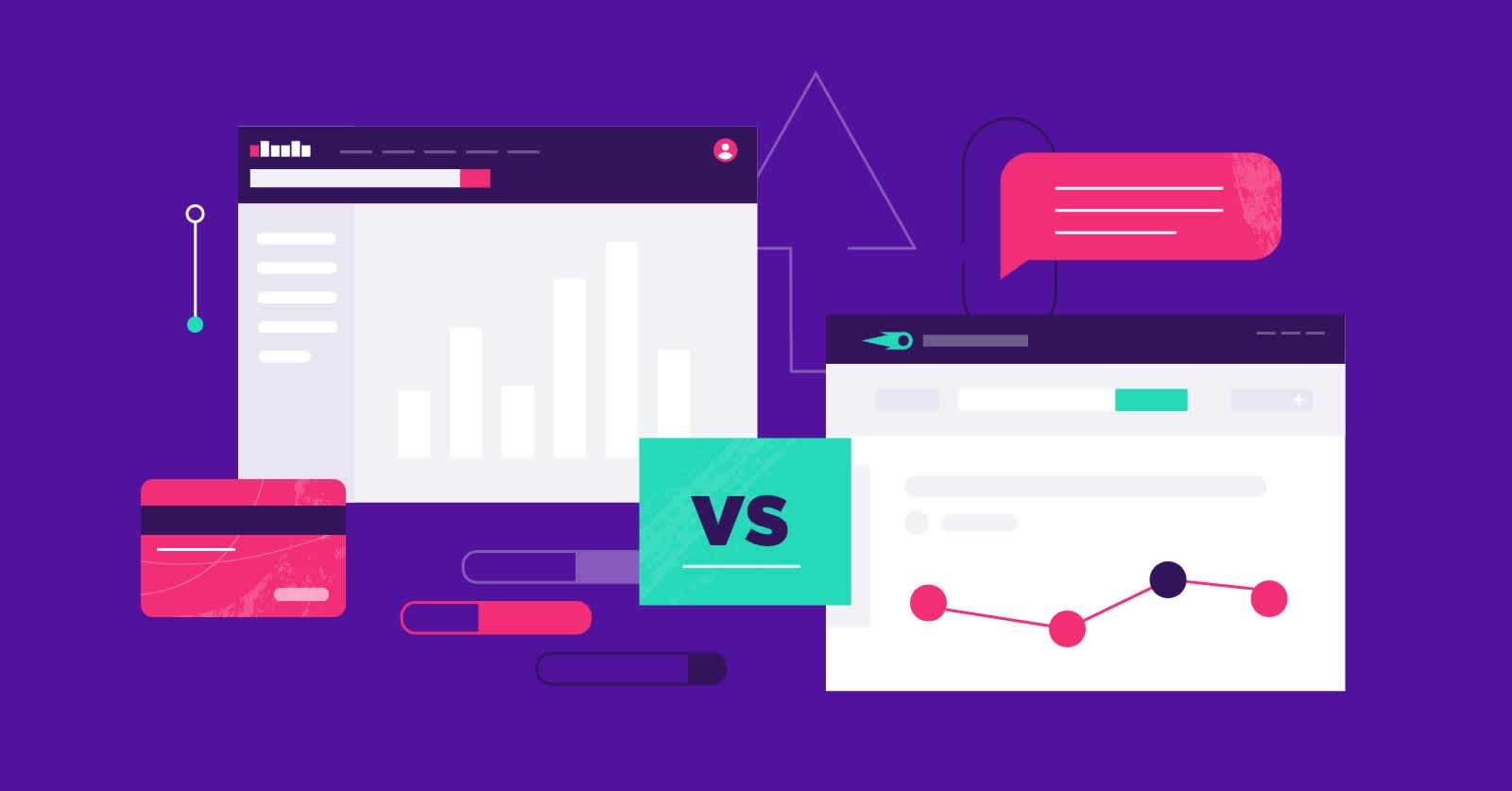When we discuss digital marketing, there's no way we can leave out Search Engine Optimization (SEO). Today, however, we are going to delve deep into one particular facet of SEO- "Blogging for SEO." This step-by-step guide will explain how blending SEO in with blogging can turn your website into a traffic hot spot, increase your ranking, and deliver a high ROI.
What Is SEO and How can Blogging Help?
Before digging into the core relationship between blogging and SEO, let’s clarify what SEO exactly is. SEO, or Search Engine Optimization, is a method applied to enhance your website’s visibility for pertinent searches. The better visibility your website’s pages have in search results, the more likely you are to garner attention and draw in prospective and existing customers to your business.
SEO offers great potential to all, from small blogging sites to large e-commerce platforms. Blogging, in particular, has emerged as a powerful tool in the SEO game plan. Keeping your web pages updated with fresh and unique content helps increase your website’s relevance and visibility in the eyes of search engines.
Why Blogging for SEO Matters
Blogging gives search engines fresh content to index and offers a platform to create relevant keywords to increase your visibility on search engine results pages (SERPs). Here are some reasons you should consider blogging for SEO:
- Keyword optimization: Blogs are the perfect way to use SEO keywords naturally. Blog posts drive traffic because they can target long-tail, less competitive keywords that consumers frequently search.
- Inbound & Outbound Links: You can increase your site's credibility through both inbound and outbound linking. Link to credible sources within your post or encourage other sites to link back to your quality content.
- Improving on-site time: High-quality, informative blog posts keep visitors on your site longer. This reduces your site's bounce rate, indicating to search engines that your site is a relevant result for readers.
Now that you understand the importance of blogging for SEO, let’s move into the steps to integrate SEO into your blogging strategy.
How to Blog for SEO: The Step-By-Step Guide
1. Find the Right Keywords
Every good blog post starts with a keyword. Your goal should be to find search keywords relevant to your topic that consumers are using.
- Use keyword research tools: Tools like Google Keyword Planner or SEMrush can generate keyword ideas and show you the competition level, search volume, and more for each keyword.
- Look at related searches: On Google’s results page, scroll to the bottom. You’ll see a section titled “ searches related to.” This section can give you some additional keyword ideas.
2. Write High Quality, Unique Content
Original content is key. Search engines adore quality content and penalize sites for duplicate content. Your content should be engaging, informative, and valuable to your audience.
3. Make Use of Meta Descriptions
Meta descriptions are short snippets that describe a page’s content. They are the first section that people see when Google serves up your page. An engaging, keyword-optimized meta description can lead to a higher click-through rate.
4. Optimize Your Images
Images can make your blog posts more appealing to readers, but they can also influence your SEO. Be sure to optimize your images for SEO by including relevant alt text.
5. Use Keywords Naturally
Avoid keyword stuffing, as it can lead to penalties from search engines. Instead, use your keywords naturally throughout your content.
6. Ease of Reading
Use headers and bullet-points to make your text easy to read. Breaking up your text and highlighting key points make it easy for readers—and search engines—to understand your content.
The Power of Social Media Sharing for Blog SEO
In this ever-connected world, leveraging social media can tremendously help your SEO-oriented blogs. Every share of your blog post on social media is a new inbound link that search engines take into account for ranking purposes.
Frequently Asked Questions about Blogging For Seo
What Types of Blogs are Beneficial for SEO?
Long-form, informative, and engaging blog posts perform best for SEO. High-quality content is vital as it keeps visitors on your site longer and increases chances of them linking back to it. You also get to incorporate more SEO-friendly keywords in long-form blogs.
How Often Should I Blog for SEO Purposes?
Regular, consistent blogging for SEO is key. Many businesses aim for at least one blog post per week, but the specific frequency can depend on your industry and available resources. The main goal is to keep delivering fresh, relevant content for your readers and search engines.
Where Should I Incorporate Keywords in my Blog?
To optimize your blog for SEO, incorporate keywords in several places, including your blog title, headings, and throughout your content. However, be aware of keyword stuffing – overusing the keyword can harm your SEO.
Are Images Important in Blogging for SEO?
Yes, images are not just aesthetically pleasing but also great for SEO. Adding relevant images with appropriate alt text to your blog posts helps search engines understand your content better, and can help your blog appear in image search results, too.
Can Social Media Help in Blogging for SEO?
While social signals are not direct SEO ranking factors, an increased social media presence can indirectly improve your SEO. When you share your blogs on social media and get likes, shares, and comments, you're exposing your brand to a wider audience, increasing your site traffic, and potentially gaining more backlinks.
How Do Backlinks Boost my Blogging for SEO Strategy?
Backlinks from reputable sites signal to search engines that your content is valuable and trustworthy, helping to improve your site’s authority and SEO rankings. Quality backlinks are also a means of directing more traffic to your blog.
How Does Guest Blogging Contribute to SEO?
Guest blogging, when done right, benefits SEO through backlinks. When you guest blog on another website, you usually get a chance to include a link back to your own site. If the host site has good SEO itself, this link can considerably boost your own SEO.
How do Blog Comments Boost SEO?
Engaging with your audience via the comments section of your blogs provides fresh and regularly updated content, which can contribute to SEO. Additionally, this engagement helps build a community around your blog, which can increase social sharing and traffic.
What is the Role of a Meta Description in Blogging for SEO?
A meta description is a brief summary (about 155 characters) of your blog's content that gets displayed in search engines' results. It doesn't influence your rankings directly but helps to attract more clicks from potential visitors, indirectly improving SEO.
How Do I Write SEO Friendly Blogs?
Writing an SEO friendly blog involves researching appropriate keywords, using them effectively in your headings and content, adding meta descriptions, using images appropriately, and creating quality, well-structured content that provides value to your readers.
Pros of Blogging for SEO
Fresh Updated Content
Google, and other search engines, love fresh and updated content. When you consistently update your blog, you signal to search engines that your website has latest and relevant information. This in turn greatly improves your ranking in search engine results.
Keeps Users Engaged
Frequent blogging keeps users coming back to your website and increases their session duration. Both these factors influence your SEO ranking as well.
Webpage Indexing
The more you blog, the more pages you create for your website. Each new webpage is an opportunity for search engines to index that page and show it in their search results. This increases your website's visibility and search engine ranking.
Backlinks
A high-quality blog greatly increases the likelihood of getting backlinks from reputed websites. And, as we know, quality backlinks play an important role in enhancing search engine ranking.
Establishes Authority
A well-written blog post also establishes you as an authority in your field which can lead to more backlinks.
Supports Social Media Strategies
Great blogs often get shared on social media platforms. This multiplies the reach of your blog posts, potentially attracting greater traffic to your site. While social shares may not have a direct impact on SEO, increased traffic can indirectly affect your site's ranking.
Cons of Blogging for SEO
Requires Time and Effort
Writing a quality blog post that will attract readers and contribute to your site’s SEO is not an easy task. It requires a significant amount of time and effort, including topic research, keyword research, drafting, editing and finally publishing.
Regular Updating
One-time blogging is not going to influence your SEO ranking. You need to frequently and consistently update your blog to see the desired SEO results.
Duplication Penalties
Google and other search engines may penalize your website if your blog has duplicated content. Creating original and unique content for every blog post can be challenging and time consuming.
Poor Quality Content
Poorly written content may adversely affect your brand image. Readers are likely to gravitate away from your site if they encounter content that is poorly written or doesn’t provide value.
SEO Knowledge Required
Writing for SEO is different than regular writing. It requires a good understanding of SEO techniques such as keyword research and usage, backlinking, structuring content for easy readability etc. Not knowing or improperly implementing these techniques can have a negative impact on your SEO efforts.
Relatively Slow Results
Implementing a blogging strategy for improving your SEO ranking is not going to fetch immediate results. It’s a long term game that requires patience and persistence.
Summary
Blogging for SEO is a key technique in any digital marketing strategy. It brings numerous benefits such as boosting website visibility, driving more traffic and strengthening your brand's reputation. Ongoing scheduling of keyword-rich, high-quality content on your blog enhances your authority in your niche and improves your search engine ranking.
There's no denying that Blogging for SEO is a long-term commitment. It's not a quick fix or overnight solution. It can take time to see the results, but when done right, the rewards can be great. The strategy allows businesses to connect with their target audience and build a relationship based on trust and authentic communication.
Bottom line, if you're not blogging for SEO, you're leaving significant opportunities on the table. This simple, yet effective strategy helps in creating a strong online presence, keeps your audience informed and makes your website more attractive to search engines. So, keep writing, keep optimizing, and watch your online influence grow.
About WebPerfex
WebPerfex is a pretty cool, home-grown digital marketing agency based out of sunny Sacramento, CA. These folks live and breathe everything related to web design, SEO, branding, and digital marketing. With years of experience under their belts, they've consistently delivered top-tier digital solutions that help businesses grow in the online space - that's kick-ass! You'll find a dedicated team of creative professionals at WebPerfex who are always ready to take on the next big challenge. It's not all about work though - they also know how to kick back, relax, and enjoy the California sunshine. Go ahead, give these Sac-Town digital wizards a buzz!




